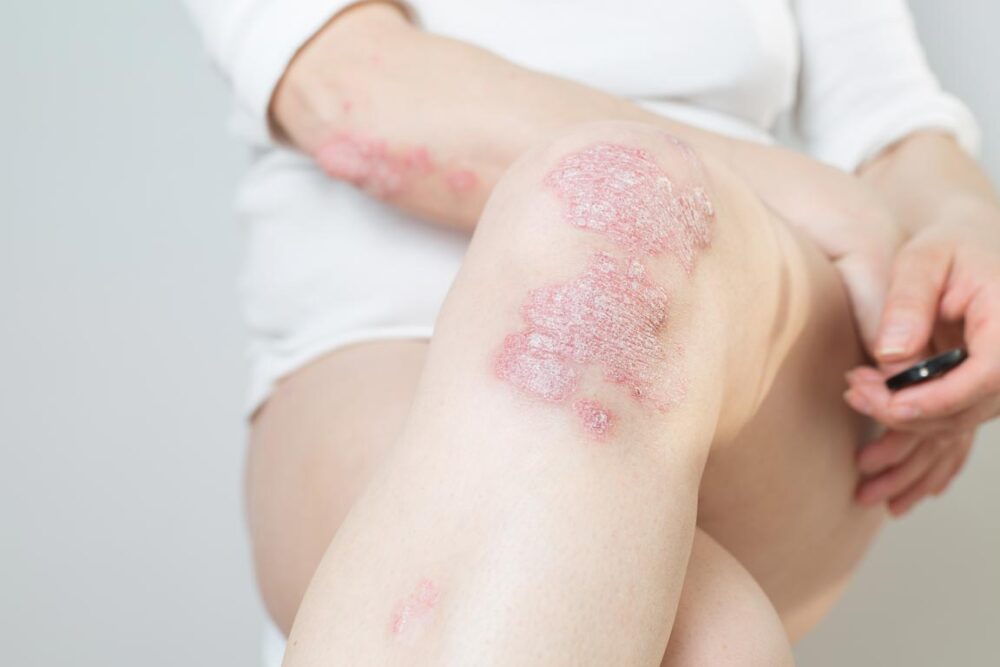Advertisment
UCB announces the presentation of new four-year data in patients with moderate to severe plaque psoriasis treated with bimekizumab

UCB, a global biopharmaceutical company, announced the presentation of new four-year data in patients with moderate to severe plaque psoriasis treated with bimekizumab, an IL-17A and IL-17F inhibitor. These post-hoc analyses include maintenance of response through four years in bimekizumab patients who achieved near-complete or complete skin clearance after one year, and the clinical response up to four years in patients switching to bimekizumab following an inadequate response to either adalimumab, ustekinumab, or secukinumab.
These data are presented at the 33rd European Academy of Dermatology and Venereology (EADV) Congress in Amsterdam, the Netherlands, 25–28 September 2024. In addition, the design and rationale behind the exploratory, multicentre, open-label Phase IIIb bimekizumab study, BE UNIQUE, that is exploring the fast onset, high level and durability of clinical and molecular responses in patients with psoriatic disease are also shared.
“Given the chronic nature of psoriasis, it is critically important to evaluate long-term response of treatments. Achieving completely clear skin is a key goal for people living with moderate to severe plaque psoriasis and results presented at EADV 2024 showed that over 7 out of 10 patients who achieved complete skin clearance after one year, maintained this response at four years,” said Professor Richard Warren, Northern Care Alliance NHS Foundation Trust and The University of Manchester, United Kingdom.
Highlights from the bimekizumab abstracts presented at EADV 2024: Maintenance of response from end of pivotal trials through four years (post-hoc analysis): Data were pooled from the 52-week BE VIVID and 56-week BE SURE and BE READY pivotal Phase III trials, and the open-label extension (OLE), BE BRIGHT. Included patients were randomized to bimekizumab 320 mg every four weeks (Q4W) to Week 16, then bimekizumab Q4W or every 8 weeks (Q8W) until OLE entry. Data are reported here for the combined bimekizumab dose group: i. Of the 771 patients forming this group, 89.6 percent (n=691) and 75.1 percent (n=579) were PASI90 and PASI100 responders at Year 1, respectively. ii. Of the PASI90 responders at Year 1, 87.9 percent maintained PASI90 response at Year 4. iii. Of the PASI100 responders at Year 1, 74.2 percent maintained PASI100 response at Year 4
Four-year analysis of patients switching after inadequate response to adalimumab, ustekinumab and secukinumab (post-hoc analysis): Included patients from the 56-week BE SURE (bimekizumab versus adalimumab) and 52-week BE VIVID (bimekizumab versus ustekinumab) who then entered the BE BRIGHT OLE, and also patients from the 48-week BE RADIANT (bimekizumab versus secukinumab) who then entered its OLE. All patients received bimekizumab Q8W from OLE Week 16/48 (BE RADIANT/BE BRIGHT) or the next scheduled visit. i. Of patients randomized to receive adalimumab at baseline who entered the OLE, 41.9 percent.=54/129) did not have a PASI90 response at the time of switch to bimekizumab (Week 24). a. . Following switch from adalimumab and after 176 weeks of bimekizumab, 92.2 percent had a PASI90 response and 74.4 percent had a PASI100 response. ii. Of patients randomized to receive ustekinumab at baseline who entered the OLE, 33.3 percent (n=44/132) did not achieve PASI90 at the time of switch to bimekizumab (Week 52). a. Following switch from ustekinumab and after 144 weeks of bimekizumab, 82.0 percent achieved PASI90 and 58.8 percent achieved PASI100. iii. Of patients randomized to receive secukinumab at baseline who entered the OLE, 18.5 percent (n=58/314) did not achieve PASI90 at the time of switch to bimekizumab (Week 48). a. Following switch from secukinumab and after 96 weeks of bimekizumab, 71.7 percent achieved PASI90 and 39.8 percent achieved PASI100
UCB previously shared four-year safety data on bimekizumab in the treatment of moderate to severe plaque psoriasis. Data showed that treatment-emergent adverse events were consistent or decreased with longer bimekizumab exposure, with no new safety signals





